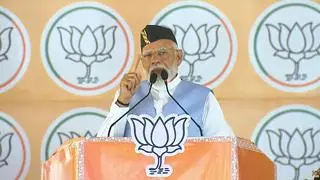Alongside the ‘Azadi ka Amrit Mahotsav’ to celebrate 75 years of progressive India, we are also witnessing another celebration that is today seen as an amalgamation of youth, innovation and impact. I am talking about start-ups. It would have been a farfetched imagination if somebody had called out two decades ago that start-ups would become the centerstage in policy making. But here we are.
Among the different recognitions for start-ups, the National Start-up Awards and the National Technology Awards for start-ups and MSMEs given by the Indian government have received a lot of attention. Such awards celebrate entrepreneurship success and inspire many others to pursue their start-up dreams. What characterises the award winners?

Age, location
In general, all the award-winning start-ups would have demonstrated significant impact, since impact is one of the key assessment criteria in such awards. The average age of awarded start-ups range between four and seven years, indicating that the awarded start-ups have been able to reach a scale in such a short span of time to be able to showcase impact. However, a concern is the concentration of the awarded start-ups in Tier-1 cities. The proportion of awardees from Tier-2 and other cities is even lower for National Start-up Awards as compared to National Technology Awards. Interestingly, start-ups from the city of Bengaluru account for close to one-third of the awards in the National Start-up Awards.
Age of founders
The average age of the founders during the year their start-up was awarded is in 40s, indicating a good combination of youth and experience. Founders of technology start-ups need to have more years of training and experience before they begin their ventures, and therefore it is natural that the average age of founders is higher in the case of National Technology Awards as compared to that of National Start-up Awards. An interesting aspect is the proportion of awarded start-ups with women founders. About 30 per cent of the National Start-up Award winners have at least one women founder. The success of many start-ups with women founders underline the contribution of women to the success of their ventures.
Investors and funding
Incubation plays a more prominent role in the case of technology start-ups, as we see that more than 50 per cent of the awardees were supported by incubators. The comparable ratio was only about 30 per cent for the National Start-up awardees. A large proportion of the start-ups in both the categories have also been funded by angel investors and VCs, indicating the strong the association of the investors with the success of these start-ups. However, the quantum of capital flow and the average number of investors are higher for the conventional start-ups as compared to the technology start-ups.
Intellectual property
While significant number of start-ups in both the categories have published patents, the ratio is higher in the case of technology start-ups as expected. However, more than one-third of the awarded start-ups in both the categories have published patents, indicating the importance given to creating intellectual property by start-ups for their long-term success.
The results lead to the following conclusions. First, a major objective behind the announcement of the National Start-up Day is to enable percolation of start-up culture at the grass roots level. That means, start-ups should nucleate across the length and breadth of the country. Currently, that is not happening. Efforts made to start-up hubs across the country have not yielded results. Second, the unstated aspiration of policy makers and industry leaders is to create start-ups that use avant-garde innovation or technology. While the technology start-ups need more capital, it is the more conventional start-up that garners the lion’s share of the capital. Government has a crucial role to play here if technology start-ups must flourish. Third, there is a strong correlation between start-up awards and one or more of the following factors: incubators, investors and intellectual property. Strengthening these ‘i’ factors would bring more success for start-ups. Its exactly 100 years ago that Robert Frost wrote, “… I have promises to keep, And miles to go before I sleep…” a thought that rings true to this day, and even more so while we celebrate start-ups.
(The writer is Professor, Centre for Research on Start-ups and Risk Financing, IIT Madras; Associate, Harvard Kennedy School, Harvard University)







Comments
Comments have to be in English, and in full sentences. They cannot be abusive or personal. Please abide by our community guidelines for posting your comments.
We have migrated to a new commenting platform. If you are already a registered user of TheHindu Businessline and logged in, you may continue to engage with our articles. If you do not have an account please register and login to post comments. Users can access their older comments by logging into their accounts on Vuukle.